July 14, 2016
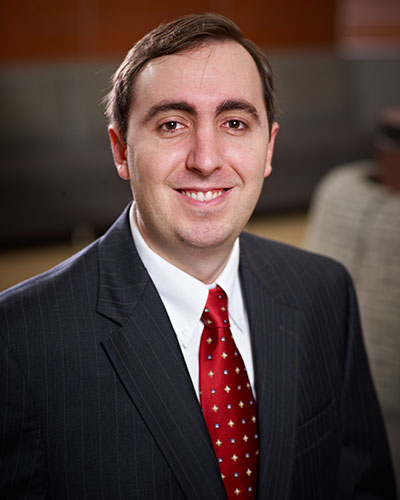
Expert in Thoracic Tumors Joins Cutting-Edge Treatment Center
William F. Regine, MD, FACR, FACRO, the Isadore & Fannie Foxman Schneider Endowed Chairman and Professor of Radiation Oncology at the University of Maryland School of Medicine (UM SOM) and the Executive Director of the Maryland Proton Treatment Center (MPTC), along with UM SOM Dean E. Albert Reece, MD, PhD, MBA, announced today that Charles B. Simone, II, MD, a nationally-recognized expert in proton therapy at the University of Pennsylvania, has been named the new Medical Director of the MPTC. Dr. Simone will also be appointed Associate Professor in the UM SOM Department of Radiation Oncology and will begin in his new position in November 2016.
“Dr. Simone brings a wealth of knowledge and experience to this highly important role,” said Dean Reece, who is also the vice president for Medical Affairs, University of Maryland, and the John Z. and Akiko K. Bowers Distinguished Professor. “He will be an essential asset to the MPTC as it continues to grow and develop into one of the premier treatment and research centers in the world.”
As Medical Director, Dr. Simone will continue to define and implement processes ensuring that MPTC is integrated with the Radiation Oncology Department and The University of Maryland Marlene & Stewart Greenebaum Comprehensive Cancer Center, the University of Maryland Medical Center/System, and the UM SOM.
He will also participate in development of clinical trials and research protocols, assume a leadership role within the Maryland Proton Alliance, a partnership between UM SOM and MPTC, and provide expertise in refining criteria for proton therapy patient selection within the department’s clinical practice guidelines.
“I have known Dr. Simone for years, and he is both an excellent researcher and a superb clinician,” said Dr. Regine. “At MPTC, we are excited that he will make substantial contributions to our enterprise.”
Prior to coming to MPTC, Dr. Simone was co-director of the Penn Mesothelioma and Pleural Program at the University of Pennsylvania Health System. He was also Associate Professor in the Department of Radiation Oncology at the University of Pennsylvania School of Medicine and the Thoracic Oncology Service Chief for the University of Pennsylvania Health System.
He is nationally recognized as an expert for the use of proton therapy in the treatment of thoracic malignancies, development of clinical trial strategies, and innovative research in thoracic radiation oncology. He chairs the Lung Committee of the Proton Collaborative Group, a national cooperative research coalition, is a member of the American Society for Radiation Oncology Lung Resource Panel, and a member of the NRG Oncology Lung Cancer Committee and the NRG Oncology Radiation Oncology Committee.
“I am very excited to work at this cutting-edge center,” said Dr. Simone. “Our goal will be to foster world-class treatment for cancers using proton therapy, as well as to further research in this area and educate outstanding researchers and clinicians.”
Dr. Simone received an MD degree from University of Pennsylvania School of Medicine. He completed an internship at the Graduate Hospital in Philadelphia, and a residency at the Radiation Oncology Branch of the National Cancer Institute, where he served as the Chief Resident. In his research, Dr. Simone has worked extensively on radiation therapy for thoracic tumors. He has coauthored more than 150 peer-reviewed manuscripts, chapters, reviews, and editorials, and has presented more than 100 scientific lectures to national and international audiences.
About the University of Maryland School of Medicine
The University of Maryland School of Medicine was chartered in 1807 and is the first public medical school in the United States and continues today as an innovative leader in accelerating innovation and discovery in medicine. The School of Medicine is the founding school of the University of Maryland and is an integral part of the 11-campus University System of Maryland. Located on the University of Maryland’s Baltimore campus, the School of Medicine works closely with the University of Maryland Medical Center and Medical System to provide a research-intensive, academic and clinically based education. With 43 academic departments, centers and institutes and a faculty of more than 3,000 physicians and research scientists plus more than $400 million in extramural funding, the School is regarded as one of the leading biomedical research institutions in the U.S. with top-tier faculty and programs in cancer, brain science, surgery and transplantation, trauma and emergency medicine, vaccine development and human genomics, among other centers of excellence. The School is not only concerned with the health of the citizens of Maryland and the nation, but also has a global presence, with research and treatment facilities in more than 35 countries around the world. http://medschool.umaryland.edu/
About the Maryland Proton Treatment Center
The Maryland Proton Treatment Center offers proton therapy – a highly advanced and precise form of radiation therapy that can increase radiation dose to tumor while decreasing dose to healthy, surrounding tissue – to the Baltimore/Washington region and beyond. It is a highly effective treatment for a wide range of localized tumors such as those found in the brain, base of the skull, head and neck area, eye tumors, tumors of the esophagus, lung, prostate, liver, breast, spinal cord, as well as gastrointestinal malignancies. It is also an important treatment option for children with cancer.
At MPTC, each treatment room will be equipped with the most advanced form of “pencil beam” proton therapy, which essentially paints the radiation onto the tumor while stopping precisely at the site of tumor. Proton therapy is performed on an outpatient basis and is a well-tolerated, non-invasive treatment that can reduce side effects. It can be used in conjunction with other modalities of cancer treatments such as chemotherapy and surgery. MPTC will offer a robust clinical trial program to all of its patients to further evidence-based medicine.
MPTC has been patient-centered from the beginning – with a focus on accessibility and affordability. The center was designed to be a regional resource, providing the same training, privileges and clinical guidelines to physician groups across the region who will work side-by-side with MPTC faculty and staff, thus improving efficiency and affordability. MPTC offers free concierge services to ensure a seamless patient experience and a successful reconnection back to their referring physician. One of the goals of MPTC is to remain cost-neutral to insurance providers, meaning patients will pay the same for proton treatment as they would for other more conventionally available intensity-modulated radiation therapy treatments at the University of Maryland. mdproton.com
Contact
Office of Public Affairs
655 West Baltimore Street
Bressler Research Building 14-002
Baltimore, Maryland 21201-1559
Contact Media Relations
(410) 706-5260
Related stories
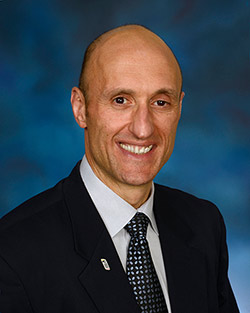
Thursday, March 09, 2023
Leading Physician-Scientist Dr. William F. Regine Named Senior Associate Dean for Clinical Affairs at UM School of Medicine and President of UM Faculty Physicians, Inc.
University of Maryland School of Medicine (UMSOM) Dean Mark T. Gladwin, MD announced today that William F. Regine, MD, FACR, FASTRO, FACRO has been appointed to the executive role of Senior Associate Dean for Clinical Affairs at the University of Maryland School of Medicine (SOM), effective immediately.
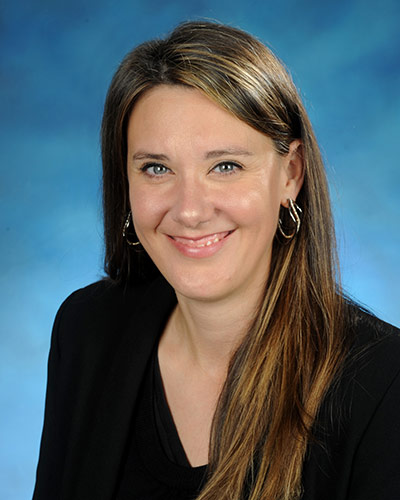
Tuesday, November 17, 2020
UMSOM's Department of Radiation Oncology Announces New Endowed Professorship and Senior Leadership Appointments in the Department
University of Maryland School of Medicine (UMSOM) Department of Radiation Oncology Chair William F. Regine, MD, FACR, FACRO, along with UMSOM Dean E. Albert Reece, MD, PhD, MBA, announced today that three prominent faculty members in the Department of Radiation Oncology will be promoted into leading department positions that recognize their outstanding academic scholarship and success.
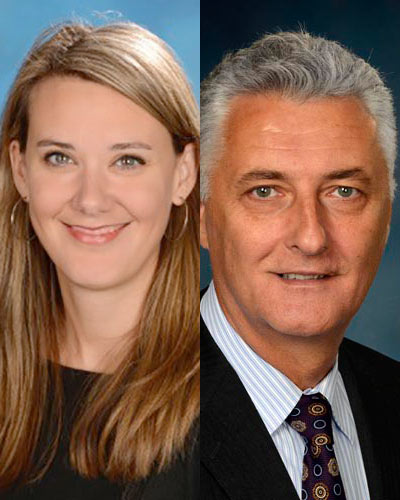
Monday, September 24, 2018
University of Maryland School of Medicine Researchers to Present Original Research at Key Radiation Conference
The University of Maryland School of Medicine (UMSOM) announced that the Division of Translational Radiation Science (DTRS) will participate in the annual meeting of the Radiation Research Society (RRS) on September 23-26, 2018, in Chicago.
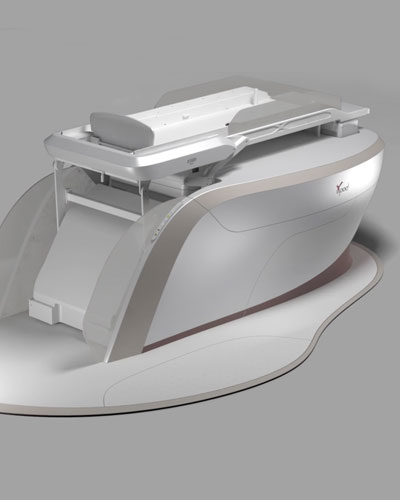
Friday, December 22, 2017
First Stereotactic Radiation Therapy System Designed To Treat Early Stage Breast Cancer Receives FDA Clearance
The GammaPod ™ – a first-of-its kind stereotactic radiotherapy system to treat early stage breast cancer – has received 510(k) clearance from the U.S. Food and Drug Administration (FDA), paving the way for the manufacturer to bring the system to market for the treatment of breast cancer patients.
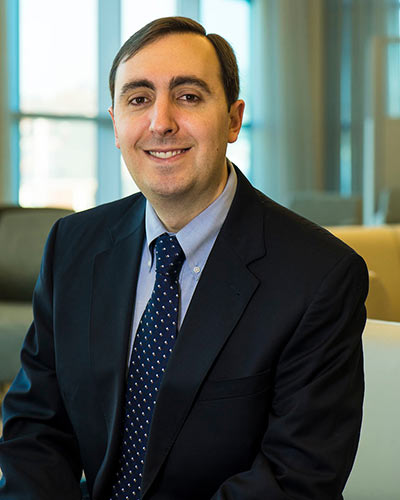
Thursday, August 10, 2017
Study Finds That Proton-Beam Therapy is Safe for Treating an Aggressive Type of Lung Cancer
Proton-beam radiotherapy is safe and appears to be effective in treating some cases of small cell lung cancer (SCLC), an aggressive cancer that accounts for about 10 to 15 percent of all lung cancers, according to a new study published online in the journal Cancer.

Thursday, October 27, 2016
Dr. William F. Regine is Awarded 2016 Entrepreneur of the Year From the University of Maryland, Baltimore
William F. Regine, MD, FACR, FACRO, the Isadore & Fannie Schneider Foxman Endowed Chair and Professor in Radiation Oncology at the University of Maryland School of Medicine (UM SOM) and Executive Director of the Maryland Proton Treatment Center (MPTC) has been awarded the 2016 Entrepreneur of the Year from the University of Maryland, Baltimore (UMB).

Friday, January 15, 2016
UM SOM to Participate in Expanded Medical Countermeasures Research Project
University of Maryland School of Medicine (UM SOM) Department of Radiation Oncology Chair and Professor William F. Regine, MD, FACR, FACRO, and UM SOM Dean E. Albert Reece, MD, PhD, MBA, announced today that researchers at the UM SOM have been selected as key contractors by the Biomedical Advanced Research and Development Authority (BARDA), for its Radiation Nuclear Animal Model Development program. BARDA is part of the Office of the Secretary for Preparedness and Response in the U.S. Department of Health and Human Services (DHHS).
